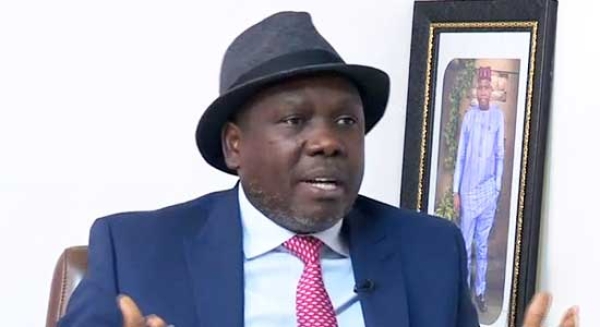Daniel Bwala, the special adviser on policy communication to President Bola Tinubu, says governors opposed to the tax reform bills are prioritising revenue over the welfare of Nigerians.
The proposed legislations comprise the Nigeria tax bill, Nigeria tax administration bill, Nigeria revenue service establishment bill, and the joint revenue board establishment bill.
One of the most contentious elements is the proposed revision of the value-added tax (VAT) sharing formula, which has drawn widespread opposition, particularly from stakeholders in northern Nigeria.
During a presidential media chat in December 2024, Tinubu said the tax reform bills “have come to stay”.
The president also signalled a willingness to make concessions to address stakeholder concerns.
Speaking in an interview with Channels Television on Monday, Bwala said the tax bills are not regional issues.
He added that the debate over the passage of the bills is part of the normal lawmaking process in the country’s legislative system.
“There are governors who are from other parts of Nigeria that are not from the north who are also objecting to it. There are some of them who are not vocal on it but have expressed their minds,” Bwala said.
“I choose to make my argument completely out of this prism of regionality. Because that is where it is inflaming the passion.
“The tax reform bills have come to stay, and they will be passed. Let us forget that it is the north vs the south; it is the governors who are going to be impacted.
“It is the governors from states where their income will reduce if the derivation is applied. These set of governors are in the majority of the states and not limited to the north.
“Maybe the governors from the north have decided to be vocal about it.
“But in the midst of this cacophony of positions between the governors and the federal government remember, even the case of local government autonomy wasn’t a case of region, it was still the governors because local government autonomy from the beginning was considered an initiative that would weaken their powers… that is the same approach we are giving to this tax.
“To the governors who believe or think that their revenues are going to go down, to tell them that if our focus is the Nigerian people, then it should be more about the generality of Nigerians who are more than 36 anyway.
“Because the governors are 36 plus the minister of the FCT which makes it 37. But those who will be impacted positively by the implementation of this tax are 200 plus million people in Nigeria.
“Because if you look at the content, you will see a lot of initiatives that will benefit the Nigerian people.”


